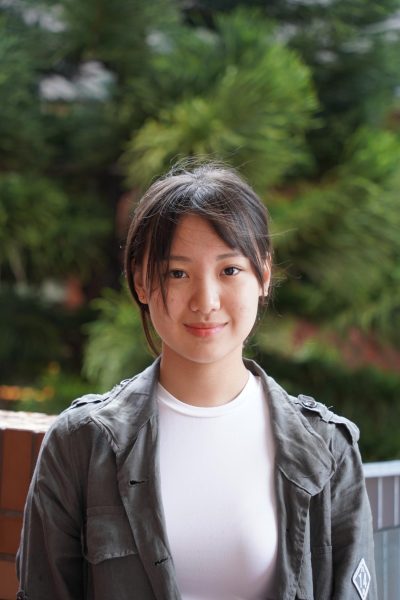There’s nothing that ticks me off more than when I’m looking for baking recipes on Instagram, and a dark romance BookTok reel pops up. Oftentimes, it’s snippets from a popular dark romance novel depicting a scene that’s supposed to be romantic despite being clearly abusive. But what disturbs me the most about this is how the little bubbles on the bottom of my screen show me that some of my friends had liked the reel.
Dark romance is a controversial genre that has been popularized through TikTok. This genre gets its name from its supposedly “dark” themes, such as stalking, kidnapping and even sexual assault. These novels typically share a relationship dynamic where the female main character (MC) is pined after by the male MC to the point of obsession and abuse. The female MC is, in some of the more extreme novels, explicitly raped. Ironically, despite romanticizing the abuse of women, this genre is predominantly read by women. And if you thought it couldn’t get any worse, along with perpetuating rape culture, it manages to squeeze in elements of misandry as well.
Female MCs in this genre often get caught up in some sort of drama that involves a morally-gray male character who is, more often than not, some sort of criminal. This male MC is portrayed to be helplessly in love with and eventually unhealthily infatuated with the female MC. However, instead of pursuing the woman of his affection in a non-toxic way, he resorts to stalking her, kidnapping her and, in some instances, raping her. Fantasizing about this sort of “romance” is problematic for obvious reasons—it’s more crime and abuse than it is romance. But oftentimes, dark romance is dismissed as a fantastical portrayal of a few unstable women’s desires, and the consequences of normalizing these fantasies are overlooked. Yet, despite the fact that many see this genre as slightly disturbing but otherwise harmless, it has already begun perpetuating rape culture.
Rape culture refers to a culture where sexual violence and abuse are normalized—sometimes even romanticized—through media. And to put it explicitly, BookTok is making men think that women like being abused and raped. We can see this especially through BikerTok.
BikerTok is a prevalent community on TikTok. Although there certainly are influencers who actually post bike-related content, BikerTok has become a genre that somewhat caters to the female gaze. This community has begun merging with dark romance BookTok, with biker’s “thirst traps” containing lines or scenes from dark romance novels. These lines or scenes are threats of assault or rape towards the female MC, and men are using them to gain female viewers because they think it’s what women like. This is rape culture spreading in real time.
Some common justifications that fans of dark romance use to try and defend their genre include that fantasizing about it is different from actually wanting it to happen, that victims sometimes romanticize abuse as a trauma response and that “if you don’t like it, you just don’t have to read it.”
Firstly, I do agree that fantasizing about it is different from wanting it to happen. Clearly the only reason women find any of these depraved acts romantic is because the male MCs are portrayed as muscular, tall, handsome and rich. But the fact that it’s “just a fantasy” doesn’t excuse how, no matter the reason, idealizing abuse downplays the hardships actual victims have survived. This then leads me to the second justification, that victims sometimes romanticize abuse as a trauma response. I’m not a psychologist so I can’t provide a verdict on whether this statement is true or not. However, even if it is a valid statement, it doesn’t make it a healthy coping mechanism. Finally, the statement “if you don’t like it, you just don’t have to read it” is also invalid as this frames dark romance as a compartmentalized genre when it’s not. The shock value of dark romance content on TikTok causes these videos to circulate rapidly, reaching millions of viewers. And, as we can see through BikerTok, the existence of BookTok comes with the devastating threat of rape culture becoming more prevalent.
Additionally, the one-dimensional portrayals of male characters in this genre is overlooked. The way these male MCs are always hot, rich, tall, handsome, and the only personality trait they have is being morally gray and obsessed with the female MC shows how these male characters don’t have actual depth. Rather, they’re just there for women to fantasize about, making these characters the male equivalent of “women written by men.” Yes, some of them do have a traumatic backstory. But that only perpetuates the issue. It presents men as “things” to be “fixed,” feeding into the masochistic savior complex held by supporters of this genre. This is also ironic since female readers constantly complain about the misogynistic way women are portrayed in books but do not realize, or maybe simply don’t care, when novels fetishize and objectify men.
This dark romance genre from BookTok could spiral into something even more problematic if it continues to grow. Although it’s impossible to completely control people’s reading habits, it is possible to stifle the presence of dark romance books on social media to stop the rape culture and harmful portrayals of men in these books from becoming more normalized.

![A collage of dark romance book covers from an online store for dark romance novels. [PHOTO COURTESY OF TRILOGYOFROMANCE.COM.AU]](https://blueandgoldonline.org/wp-content/uploads/2025/04/IMG_4272-1200x600.png)
![A myriad of impressive trophies and awards. [ANNABELLE HSU/THE BLUE & GOLD]](https://blueandgoldonline.org/wp-content/uploads/2025/09/Awards2-1200x512.jpeg)
![Students' calendars say goodbye to exam week. [ANNABELLE HSU/THE BLUE & GOLD]](https://blueandgoldonline.org/wp-content/uploads/2025/09/Exam-week-1200x740.jpg)
![A collection of college flags. [PHOTO COURTESY OF AMBER HU ('27)]](https://blueandgoldonline.org/wp-content/uploads/2025/05/IMG_5029-1200x577.jpeg)

![An SAT word cloud. [PHOTO COURTESY OF WORDCLOUDS]](https://blueandgoldonline.org/wp-content/uploads/2025/05/SAT.jpeg)
![Collage of banned books, including “The Handmaid’s Tale” by Margaret Atwood. [MINSUN KIM/ THE BLUE & GOLD]](https://blueandgoldonline.org/wp-content/uploads/2025/04/IMG_4274-1200x681.jpeg)
